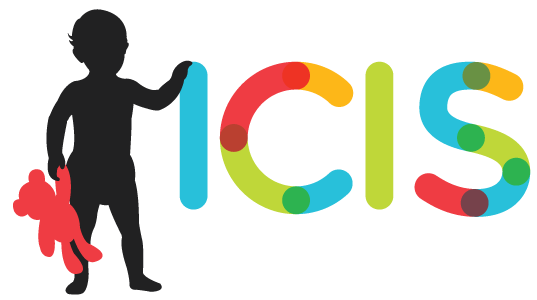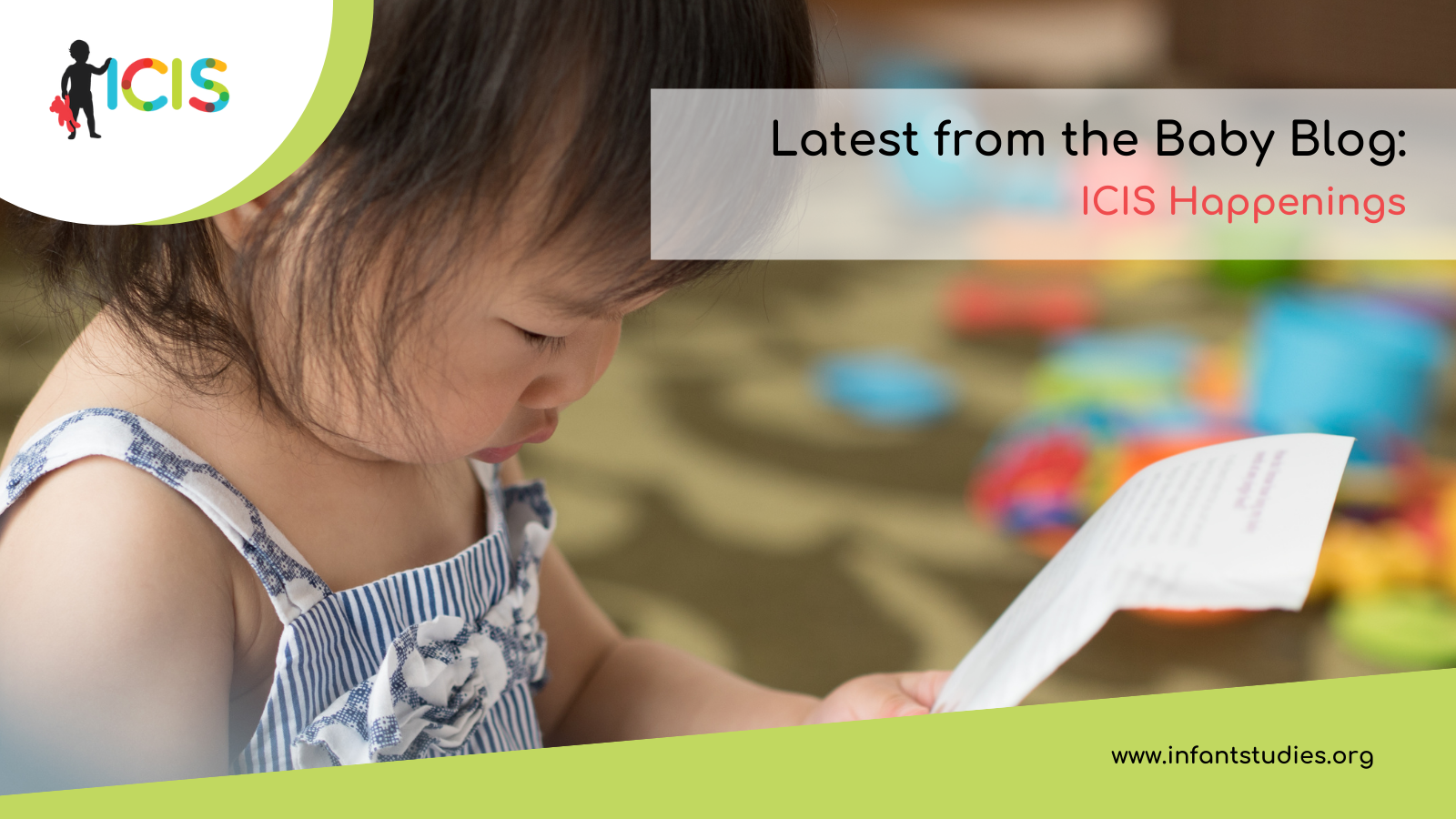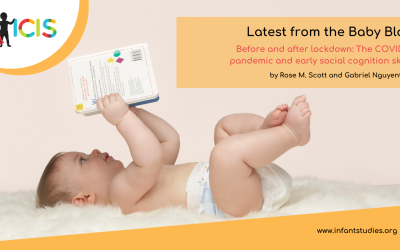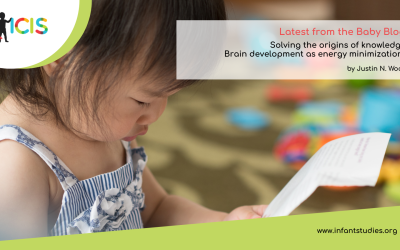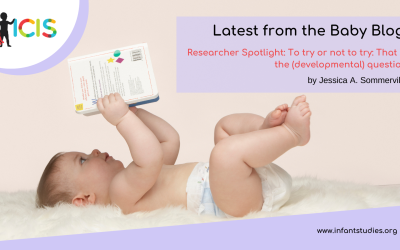by Nancy E. Hill, Rashmita Mistry and Gigi Luk
The 41st meeting of the Society for Research in Child Development (SRCD) will be taking place in Salt Lake City, Utah from March 23-25! SRCD is an international, multidisciplinary, scientific association that seeks to advance the developmental sciences and promote the use of developmental research to improve human lives.
As co-Chairs of the #SRCD23 Biennial, we— – Rashmita Mistry and Gigi Luk— – in collaboration with SRCD President, Nancy Hill, have been planning an intellectually stimulating and engaging meeting that highlights cutting-edge developmental science that is equitable, just, and inclusive of multiple perspectives, disciplines, and methodologies. We are especially excited to welcome you to our first in-person Biennial Meeting since 2019! We have missed the palpable energy of presenters sharing new findings; the hum and buzz of conversations happening all around you; bumping into colleagues in the hallway; the late-night catch-ups, and meeting new friends and collaborators.
In this post, we share a few tips to help navigate the conference and bring your attention to key events and programming. We hope the information included here will be helpful whether this is your first Biennial or, if like us, you consider yourself an “old-timer” for whom attending the Biennial is a long-standing tradition that started when we were graduate students,
What to expect in the #SRCD23 Biennial?
General information:
Check out the Biennial website at: https://www.srcd.org/event/srcd-2023-biennial-meeting/
As excited as we are to welcome you to an in-person meeting, we are mindful that a gathering of this size, with people joining from all around the world, carries with it an elevated risk of spreading the COVID-19 virus. To be safe, please check for regular updates about the COVID-19 Safety Protocol for the meeting at: https://www.srcd.org/event/srcd-2023-biennial-meeting/covid-19-safety-protocol
The online program is available for you to create your personal schedule. In early March, an app will be available to download that will sync with the event in this online program.
https://convention2.allacademic.com/one/srcd/srcd23/
Program Highlights
- To welcome you all and kick off the Biennial on March 23, Thursday, there will be an opening breakfast reception (starting at 7:15 am) preceding Nancy Hill’s Presidential Address (starting at 8:15 am).
- Come hear updates from and engage in dialogue with SRCD’s Task Force on Publications and Ethical Behavior at the Townhall on Thursday from 1:30-3:00 pm.
- The Member Meeting and Awards Ceremony on Thursday evening (starting at 7:15 pm), followed by a Welcome Reception (8:00 pm), is a great event to congratulate award winners and catch up with colleagues.
- Buy your tickets and come celebrate the The Sankofa Soiree: A 50-Year Anniversary Event hosted by the Black Caucus on Friday evening (7:00-9:30 pm).
- Attend the Presidential Salon – moderated by President Nancy Hill and President-Elect Vonnie McLoyd – on Paradigms for a Diverse Developmental Science on Saturday at 10:00-11:30 am.
- Attend a Professional Development Workshop or two to expand and update your methodological, funding, and translational toolkits.
Invited Program
SRCD’s invited program for the 2023 Biennial Meeting highlights research, policy, and practice in child development through 16 sessions— – 7 duo addresses, 4 salons, and 5 symposia across the three days. These invited sessions evolve around the intersecting themes of economic and racial (in)justice, environmental (in)justice, displacement, and Indigenous child development. To promote transdisciplinary research, community groups and youth activists will join selected invited duo addresses and salons.
See the full invited program here: https://www.srcd.org/event/srcd-2023-biennial-meeting/invited-program
Submitted program
The submitted program includes more than 3500 flash talks, posters, paper symposia, conversation roundtable, and professional development sessions. In addition, there are 20 presentations from federal agencies. In addition to the invited and submitted programs, the meeting offers exciting content from SRCD’s Student and Early Career Council (SECC), SRCD Caucuses, and Foundations.
To explore the full program, please visit: https://convention2.allacademic.com/one/srcd/srcd23/
Are you a first time attendee or graduate student?
Be sure to check out the First-Time Attendees Welcome hosted by the Student & Early Career Council (SECC) on Wednesday March 22nd from 6-7.30pm.
Graduate students, did you register for a Chat with a Leader event, a student tradition at the SRCD Biennial Meetings? This event provides a forum for students to interact with senior scholars who have central roles in the field of child development and the Society. Various sessions are available Thursday, Friday, and Saturday.
Ceck out one of the Conversation Hours hosted by SECC, including:
- I Can Do That in Graduate School? Engaging in Community-Based Research and Building Partnerships with Youth, Families, and Communities (Thu, March 23, 10:00 to 11:00am)
- Engaging in Research at a Teaching-Heavy Institution (Fri, March 24, 3:30 to 4:30pm)
- Making the Most of the Graduate School Experience Without Compromising Health and Well-Being (Sat, March 25, 10:00 to 11:00am)
- For more events, search the Online Program by Panel Type.
Look out for events organized by SRCD’s 5 Caucuses – the Black Caucus, Latinx Caucus, Asian Caucus, Indigenous Caucus, and the Sexual Orientation and Gender Identity/Expression (SOGIE) Caucus. Search Online Program by Panel Type. In addition to hosting a Business Meeting, look for Caucus-specific events and programming, including:
- SRCD Indigenous Caucus Commencement (Thu, March 23, 5:00 to 6:30pm)
- Black Caucus Poster Session and Reception (Thu, March 23, 5:30 to 6:30pm)
- Cafecito (Latinx Caucus) (Fri, March 24, 8:30 to 10:00am)
- Breaking the bamboo ceiling: Asian Leadership and Empowerment (Asian Caucus) (Fri, March 24, 10:15 to 11:45am)
- Securing an Academic Position Following your PhD: Chat with SOGIE Caucus Scholars (SOGIE Caucus) (Fri, March 24, 12:00 to 1:30pm)
Explore and enjoy Salt Lake City!
Salt Lake City (SLC) is a geographically and culturally diverse city bordered by the Great Salt Lake and surrounded by the Oquirrh (pronounced “oaker”) and Wasatch mountain ranges. Host of the 2002 Winter Olympics, it is world-renowned for its powder snow and excellent skiing and snowboarding sites— – all in less than an hour’s drive from downtown. SLC is also a great base from which to explore Utah’s breathtakingly natural beauty with over 20 national parks. For basketball fans, checkout home games for The Utah Jazz. A little trivia: SLC is the former home of the WNBA’s The Utah Starzz, one of the league’s eight original teams.
Utah is also home to more than 60,000 Native Americans who collectively represent 50+ Tribal Nations. This includes the Ute Indian Tribe of Uintah and Ouray Reservation whose ancestral lands lie about 150 miles east of Salt Lake City. The Ouray Reservation is the second-largest reservation in the country, spanning over 4.5 million acres. We hope you will take the opportunity as visitors to learn about the Native Peoples of this land including their traditions, festivals, and lifestyles. Helpful resources include:
Places to visit and ways to respect their culture and lands: https://www.visitutah.com/things-to-do/history-culture/tribal-cultures
Learn from and about a few of the Tribes: https://www.visitutah.com/things-to-do/history-culture/tribal-cultures/utah-native-tribes
Learn about the land you are on (both Utah and where you come from): https://native-land.ca
We look forward to seeing you in SLC!
About the Authors
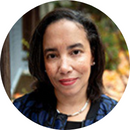
Nancy E. Hill
Harvard University
Nancy Hill is a developmental psychologist whose research focuses on parenting and adolescent development. Along with Alexis Redding, she has recently published a book focused on the developmental benefits of delaying adulthood, The End of Adolescence: The Lost Art of Delaying Adulthood (Harvard University Press, 2021). This book provides evidence for the historical precedence and rationale for extending the time to adulthood.
In addition, Hill’s research focuses in on two broader areas. First, she studies the ways race, socioeconomic status, and community context interact and impact youths’ opportunities for upward mobility, especially through secondary school and postsecondary transitions. Second, her research focuses on the relational supports and mechanisms associated with adolescents’ emerging sense of purpose and views of the economy as they influence post-secondary transitions to college and career. These include familial and school-based supportive relationships and how they support youth as they engage in school, succeed academically and hone their goals, aspirations, and sense of purpose. Hill is known for her work identifying developmentally sensitive strategies to maintain parental involvement in education during adolescence.
Hill’s current research projects include two research-practice partnerships. One is a longitudinal study following adolescents across high school, focusing on economically and ethnically diverse youth and their emerging sense of purpose and views of the economy as they influence post-secondary transitions to college and career. The second is focused on academic engagement and postsecondary planning among immigrant youth. In addition, she and her colleagues are collaborating with a large urban school district on how families experience school choice and the impact on equitable access to high-quality educational opportunities.

Gigi Luk
McGill University
Gigi Luk’s research on bilingualism’s cognitive and neural consequences extends across the lifespan. She leads a research program that examines how diverse language experiences shape development and learning. Using neuroimaging and behavioral methods, Luk studies bilingualism as an interactional experience that shapes cognition. In addition to investigating the science of bilingualism, Luk has examined how to harness scientific findings on bilingualism to improve the educational experience for children from diverse language backgrounds. In particular, she has established a research program investigating: (1) effective ways to examine bilingualism and learning; (2) how bilingualism and executive functions interact to influence literacy outcomes; and (3) brain mechanisms underlying learning new information in children and adults. Luk obtained her Ph.D. in Cognitive Psychology from York University, Canada, in 2008. She then completed a postdoctoral fellowship at the Rotman Research Institute at the Baycrest Center before joining the Harvard Graduate School of Education in 2011. In January 2019, she joined the Department of Educational and Counselling Psychology at McGill.
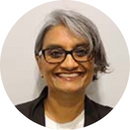
Rashmita S. Mistry
University of California, Los Angeles
